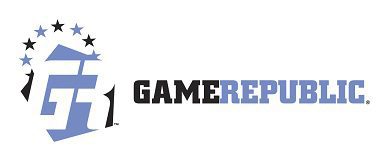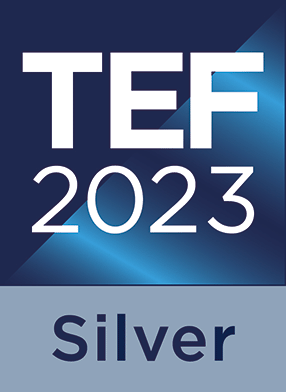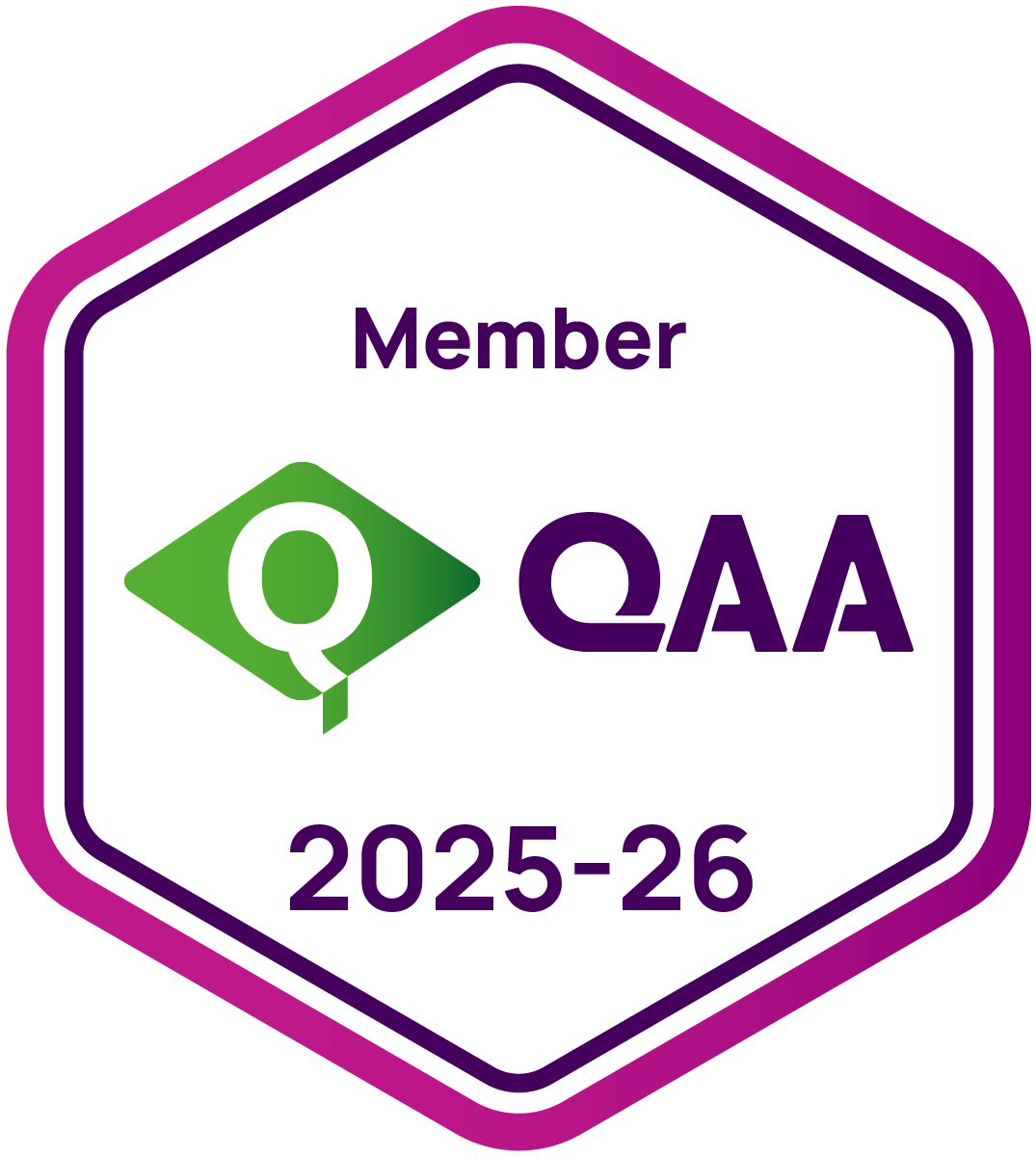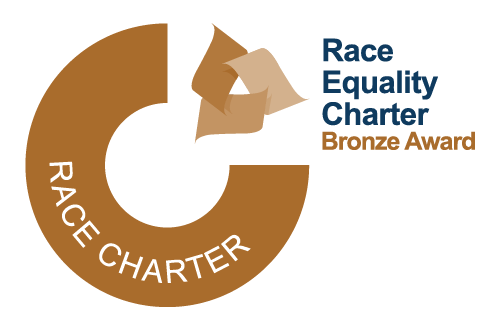Access your Prospectus
Want to find out more about the wide range of courses, student support and more available for students at University Centre Leeds?
Access your University Centre Leeds Prospectus now.

Do you have a strong passion for games mechanics and enhancing player experience? Are you driven, creative, and ready to immerse yourself in the world of game development and programming?
Our BSc (Hons) Games Development degree offers a supportive and personalised learning environment, different from any traditional university programmes.
You’ll build foundational knowledge, practical expertise and transferable skills essential for success in the highly complex and diverse gaming industry. Aligning with industry standards by taking a more practical hands-on approach, this degree will have you working on live briefs and solving real-world industry challenges. Its flexible approach supports various learning styles to cater to individual’s needs and strengths.
Working with

Entry Requirements: 48 UCAS Tariff Points
TYPICAL OFFER
UCAS Tariff Points: 48 UCAS tariff points from two A-levels (or equivalent qualifications)
A Levels: 2xD grades
BTEC Level 3 Diploma or Extended Diploma: MP, MPP grade
Access to HE Diploma: Overall pass with 60 credits, with 24 credits to be at a Merit
T Levels: Pass (D or E on the Core)
GCSE English (desirable): English Language grade 4 or above is desirable. Key Skills Level 2, Functional Skills Level 2 and the Certificate in Adult Literacy are accepted in place of GCSEs.
International qualifications: International qualifications will be assessed against these criteria
IELTS: IELTS 6.0 with no less than 5.5 in any component.
Mature applicants: University Centre Leeds welcomes applications from mature* applicants who may not have met the academic criteria, but who can demonstrate a wealth of experience in their chosen field. Candidates in this category and otherwise are likely to be interviewed to assess their suitability for the course and may be asked to provide a portfolio of evidence to support their application.
*21 years and over at the start of the course
RPL claims: The course structure actively supports claims for Recognition of Prior Certified Learning (RPCL) or Recognition of Prior Experiential Learning (RPEL).
Part Time: Students for part time study are required to hold a full level 3 qualification or the equivalent experience in a relevant subject and will need to be working in the sector.
| Course | Responses | Teaching on my course | Learning opportunities | Assessment and feedback | Academic support | Organisation and management | Learning resources | Student voice |
|---|---|---|---|---|---|---|---|---|
| FD in Game Development | 11 | 95.50% | 90.90% | 96.40% | 100.00% | 95.50% | 90.90% | 97.00% |
| Course | FD in Game Development |
| Responses | 11 |
| Teaching on my course | 95.50% |
| Learning opportunities | 90.90% |
| Assessment and feedback | 96.40% |
| Academic support | 100.00% |
| Organisation and management | 95.50% |
| Learning resources | 90.90% |
| Student voice | 97.00% |
You’ll become proficient in the tools, software, and practices commonly used in the gaming industry. This will allow you to build a portfolio that showcases the skills and knowledge highly sought after by employers.
During the course you will develop foundational knowledge and skills before progressing to advanced industry-relevant challenges. You will be encouraged to work autonomously to suit your career aspirations, with structured guidance from lecturers and an emphasis on holistic support to ensure you thrive both academically and personally throughout your studies.
This course regularly welcomes and hosts guest lectures with industry professionals to provide you an insight into current trends, best practices, and career opportunities. You will be able to attend in-person events which will provide you the opportunity to meet game developers, studios, and industry experts, connecting you with potential future career connections.
This course is validated by Luminate Education Group

Working with

If you are applying for 2026 entry, you will need to apply through UCAS.
Select your college for more information on how to apply and the exclusive benefits available to you.
Modules may include:
Year 1 (Level 4)
Module title: Introduction to 3D
Number of credits: 20
Type: Mandatory
Description: This module aims to equip you with essential knowledge and skills in 3D creation, a fundamental competency for aspiring game artists. You will demonstrate your understanding of 3D disciplines by designing and creating your own 3D assets. This hands-on experience will help you appreciate the creative, technical, and practical challenges encountered by computer game developers.
Module title: Game Design
Number of credits: 20
Type: Mandatory
Description: This module will provide an understanding of the theories behind game design and game mechanics focusing on the principles and psychological design choices from control schemes to intricate game mechanics. You will break down pre-existing games delving into the theories and design choices behind some of the most-though provoking games.
Module title: Game Engine 1
Number of credits: 20
Type: Mandatory
Description: This module introduces you to the core principles of game engines, focusing on their architecture, tools, and workflows while using visual scripting. It covers essential systems such as rendering, basic physics, input handling, and asset management while introducing basic optimisation techniques to enhance performance and further collaboration.
Module title: Game Studio
Number of credits: 60
Type: Mandatory
Description: This module will provide an overview of the process of game creation, focusing on the creation of the assets, world, mechanics, and coding. You will demonstrate your understanding of the games industry and the process of creation through practice and creation of your own game design, from its conception to a playable Alpha/Beta demo.
Year 2 (Level 5)
Module title: Game Engines 2
Number of credits: 20
Type: Mandatory
Description: This module will build on the foundational skills from previous engine-based modules developing a stronger understanding of advanced systems such as rendering, physics, AI, and asset management. Emphasis is placed on transitioning from visual scripting to programming, utilizing languages like C++ or C# within an engine, and enhancing efficiency through advanced optimization techniques.
Module title: Graphics for Games
Number of credits: 20
Type: Mandatory
Description: This module aims to equip students with essential knowledge and skills in Graphics creation, a fundamental competency for aspiring game developers. Graphics creation involves various pipelines and workflows tailored to specific projects, art styles, and asset types. A solid grasp of the fundamentals such as UI designs, character concept art, 2D pixel art etc. As long as it is appropriate to visual design.
Module title: VFX and Lighting
Number of credits: 20
Type: Mandatory
Description: This module will provide an understanding of visual effectives, such as the particles, shaders, volumes and lighting, and how these can be utilised to create primary, secondary and tertiary effects. There will be a focus on how visual effects adopt visual communication techniques to ensure effective and clear visuals to the player and give the correct feedback.
Module title: Game Studio 2 – Game Development
Number of credits: 60
Type: Elective
Description: A game has a variety of mechanics, gameplay, economies, aesthetic style, assets and scripts, which require people from different job roles to create. You will demonstrate your understanding of project creation through the showcasing of production management techniques and the specifics to each job role required for the project’s creation.
Year 3 (Level 6)
Module title: Rapid Game Prototyping
Number of credits: 20
Type: Mandatory
Description: This module provides students with an intensive, hands-on experience in rapidly prototyping game concepts. Students will learn to quickly iterate on game ideas, focusing on core mechanics, level design, and gameplay features within a compressed timeframe. Emphasis will be placed on effective communication, collaboration, and the ability to adapt to rapid changes in design. This module will equip students with essential skills for the fast-paced game development industry.
Module title: Indie Game Development
Number of credits: 20
Type: Mandatory
Description: As a Game Developer you will need to be able to develop and combine skills from the art, design, and programming disciplines to create your own games, as this broadness of skill is highly sought-after. This module focuses on iterative design and creating engaging games for the players, synthesising theory and creative skills to create unique experiences.
Module title: Game Portfolio
Number of credits: 20
Type: Mandatory
Description: This module aims to equip students with a professional, discipline-specific portfolio, essential for entering the games industry or applying for a master’s program where portfolios are increasingly a prerequisite. Students will study and evaluate a range of industry portfolios, focusing on standards and expectations for their chosen specialisation. They will then develop their own portfolio, including engine-rendered images or videos from past projects and any additional assets relevant to their field.
Module title: Game Studio 3 - Game Development
Number of credits: 60
Type: Elective
Description: The purpose of this module is to ensure students gain the necessary knowledge and skills in team working and specialised game development to create a fully realised game with a multidisciplinary cohort of members. Students will take a game idea and develop it into a more refined, polished, and technically advanced experience, with the primary focus on crafting an enjoyable and immersive experience for the player. This module provides the opportunity to develop a game that will form the centrepiece of a professional portfolio, showcasing advanced development skills and supporting progression into potential specialised game developer roles in the games industry.
You will be given the opportunity to work across a wide range of projects, developing skills in multiple areas of game design, understanding the theory of play and underpinning your designs and creations with knowledge of 3D, 2D and Programming. Developing the workflows required to create game ready assets, environments and scripting in engines such as Unity and Unreal to make playable games. You will develop skills in implementing the assets you have created and integrate them with code to create an interactive and engaging playable game.
You will develop the following skills:
Benefits include:
You will also be developed as a creative individual, learning to appreciate and apply the artistic, technical and narrative techniques that form the core of contemporary games development. Finally, you will become well versed in the real world of computer games, learning how the past, present and future of computer games are vital to your career and personal development. You will develop a range of skills that can be used across the creative industries, such as Arch Vis, Animation, TV & Film, 3D Product Visualisation and many others.
Modules will be formally assessed and graded through a range of methods, including:
This range of activities provides the opportunity for everyone to demonstrate the knowledge and skills that they have acquired throughout the course of their studies.
This course will be delivered at the new University Centre Mabgate campus which is situated on the outskirts of Leeds city centre making the campus easily accessible by bus/train/motorway networks.
The new campus is equipped with a range of facilities, such as:
Entry Requirements: 48 UCAS Tariff Points
TYPICAL OFFER
UCAS Tariff Points: 48 UCAS tariff points from two A-levels (or equivalent qualifications)
A Levels: 2xD grades
BTEC Level 3 Diploma or Extended Diploma: MP, MPP grade
Access to HE Diploma: Overall pass with 60 credits, with 24 credits to be at a Merit
T Levels: Pass (D or E on the Core)
GCSE English (desirable): English Language grade 4 or above is desirable. Key Skills Level 2, Functional Skills Level 2 and the Certificate in Adult Literacy are accepted in place of GCSEs.
International qualifications: International qualifications will be assessed against these criteria
IELTS: IELTS 6.0 with no less than 5.5 in any component.
Mature applicants: University Centre Leeds welcomes applications from mature* applicants who may not have met the academic criteria, but who can demonstrate a wealth of experience in their chosen field. Candidates in this category and otherwise are likely to be interviewed to assess their suitability for the course and may be asked to provide a portfolio of evidence to support their application.
*21 years and over at the start of the course
RPL claims: The course structure actively supports claims for Recognition of Prior Certified Learning (RPCL) or Recognition of Prior Experiential Learning (RPEL).
Part Time: Students for part time study are required to hold a full level 3 qualification or the equivalent experience in a relevant subject and will need to be working in the sector.
Graduates of this course will be prepared to pursue a wide range of careers in a variety of different sectors including:
Students who pick Game Art options could potentially go into:
Furthermore, the skills developed can also be transferred into a role in the Computing, Creative, Film and TV industries.
For the latest version of the University Centre Leeds regulations please click here.
Applications are open for 2026 entry.
To apply directly to study at University Centre Leeds as an international applicant, please visit our 'How to apply' page and complete the steps.
You can also apply through UCAS.
For more information please visit our 'How to apply' page.
Course fees for Undergraduates are £14,000 (GBP)
For 2026 Entry: Scholarship available £4,000 (GBP) all courses.
For more information about fees and scholarships, please click here.
Please see our entry requirements page for additional requirements as an international student
International students will study 5 additional hours on top of the regular timetable.
For more information about visa and immigration, please click here.
Hear directly from our students at University Centre Leeds as they share their unique journeys, challenges, and achievements. In this video, they discuss what makes learning here special, from supportive tutors and hands-on learning experiences to the close-knit community that fuels their passion and ambitions.
Discover how University Centre Leeds has helped shape their confidence, skills, and career paths, bringing their goals within reach in a vibrant and supportive environment.
Our online and in-person Open Events give you a chance to hear from tutors, discover the range of student support available, and find out for yourself why University Centre Leeds has the highest rating for student satisfaction in the city (NSS 2025).
Open DaysWant to find out more about the wide range of courses, student support and more available for students at University Centre Leeds?
Access your University Centre Leeds Prospectus now.








